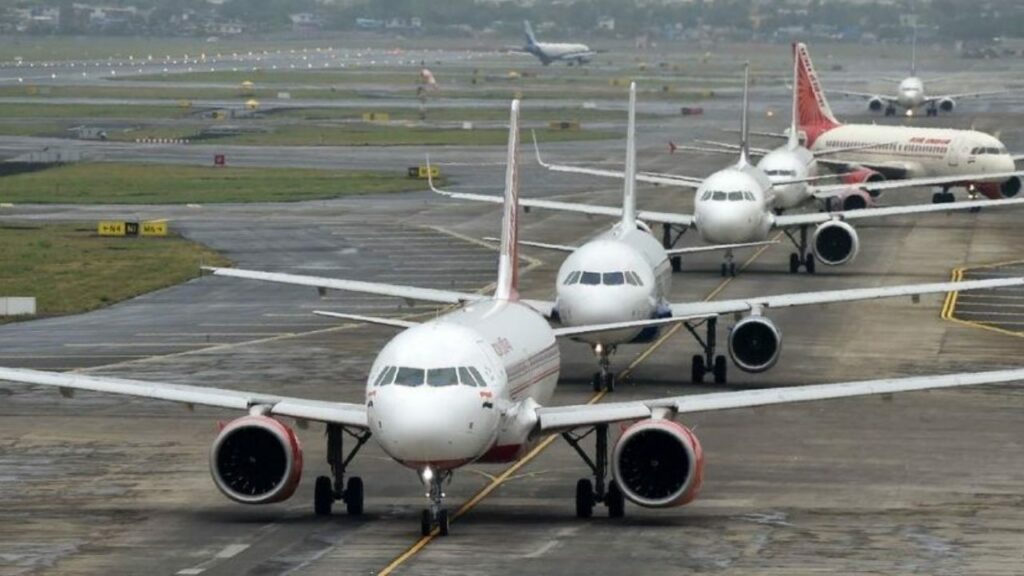India’s domestic travel ticket rates have increased for a number of reasons, including grounded planes and recent Vistara rulings. The 10% flight cut by Vistara and the approximately 200 aircraft that have been grounded have contributed to the increase in ticket prices.

India’s Domestic Travel Ticket Rates Increased
Spot airfare has increased by 8–30% on some flights; major routes have seen increases of 20–25%, according to Yatra Online. Yatra Online’s Senior VP of Air and Hotel Business, Bharatt Malik, blames Vistara’s flight curtailment for the fare increase.
Experts claim that the surge in airfare is not totally new and is the result of dynamics between supply and demand.
In March 2024, the spot fare for a one-way trip from Mumbai to Delhi was Rs. 6,058, which increased to Rs. 6,541 in April 2024, representing an 8% increase. Similarly, for the Delhi-Mumbai route, the spot fare rose from Rs. 5,683 in March to Rs. 6,357 in April, marking a 12% increase.
The Delhi-Bangalore route saw a significant increase from Rs. 6,948 to Rs. 9,643, reflecting a 39% rise, while the Delhi-Srinagar route experienced an increase from Rs. 8,192 to Rs. 10,662, indicating a 30% rise.
The choice made by Vistara is cited by Mark Martin, the founder and CEO of Martin Consulting, as aggravating the problem and facilitating additional fare increases.
Aviation Industry Currently Under Additional Strain
The aviation industry is currently under additional strain due to the grounding of aircraft by multiple carriers, including as SpiceJet, GoFirst, and IndiGo. Indian airlines have experienced difficulties when it comes to replacing their fleets of aircraft; Martin suggests that between 300 and 600 aircraft must be introduced.
Martin does a cost-benefit analysis of travel to Vietnam, pointing out that it is frequently less expensive than domestic travel inside India.
Approximately 1,000 flight cancellations are anticipated by the end of April as a result of Vistara’s statement that it will be reducing 10% of its fleet.
According to Vistara, the goal of the flight cutbacks is to minimize consumer disturbance while supplying a buffer and resilience in the rosters. The choice to reduce operations is made in advance to minimize customer disruption, with a primary focus on the domestic network.
By the end of February 2024, Vistara—a company controlled by Tata Sons—hopes to resume its current level of flying operations. Vistara’s flight decrease is indicative of the difficulties airlines confront in maintaining operational stability in the face of a changing aviation environment.
Beyond the immediate cost rises, Vistara’s flight reductions may have an influence on travel planning and industry dynamics. The competitive environment may be impacted by changes in passenger demand and traveler preferences in response to fare hikes and aircraft cancellations.











